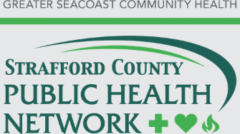September 10th-16th is National Suicide Prevention Week. Suicide is a leading cause of death in the United States, and the number of suicides has been steadily increasing since 2000. In 2016, there were more than twice as many suicides as there were murders in the United States. Suicide is the second leading cause of death for people between the ages of 10-34.
Who is affected?
Everyone is at risk for mental illness and suicide. There are many factors that play an important role in suicide risk. People who live with mental health and substance use disorders are at a higher risk for suicide, as well as those who are experiencing a lot of stress or hard experiences in their lives. Although anyone can be at risk for suicide, middle aged white men have the highest rates of dying by suicide.
What are some warning signs?
Suicide has no specific single cause. There are many risks that can lead to suicide. However, some warning signs include:
- Talking about wanting to die or to kill oneself
- Talking about feeling hopeless, trapped, or feeling like a burden to others
- Increasing use of alcohol and/or drugs
- Isolation from family/friends
- Withdrawing from social activities
- Extreme mood swings
- Too little or too much sleep
What can I do to help?
If you are worried that someone you know may be experiencing emotional crisis or suicidal thoughts, there are many steps you can take to help.
If you believe that a person is in immediate danger of suicide, call 911 or contact a medical professional right away.
If the person is not in immediate danger of ending their life, you can start a conversation and talk about your concerns. There is a lot of stigma around suicide, so it is helpful to talk to the person with an open mind and concern for their health without minimizing their problems or shaming the person for feeling suicidal.
You can give emotional support and a trustworthy relationship where the person can feel comfortable talking about their feelings.
If you don’t know how to start the conversation, the National Suicide Prevention Hotline at 1-800-273-8255 can help you figure out how to help a friend or loved one. You do not need to be suicidal to call them to ask for help. The lifeline also gives support for suicidal people, so you can help your friend or loved one to call the phone number.
Resources
https://save.org/find-help/im-concerned-about-someone-else/
https://www.nimh.nih.gov/health/statistics/suicide.shtml
https://www.americashealthrankings.org/explore/annual/measure/Suicide/state/ALL
